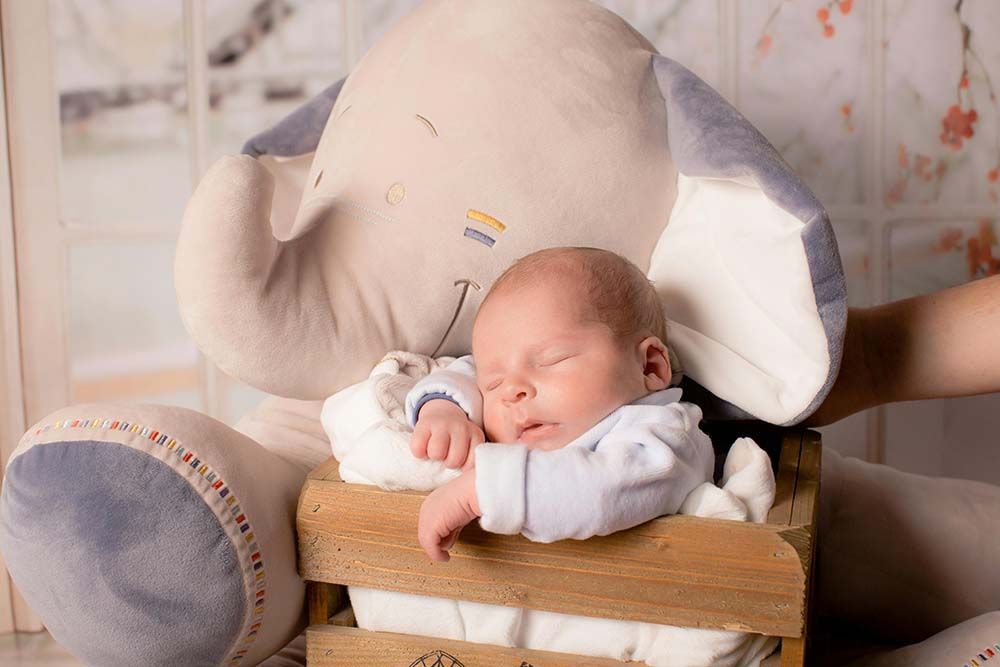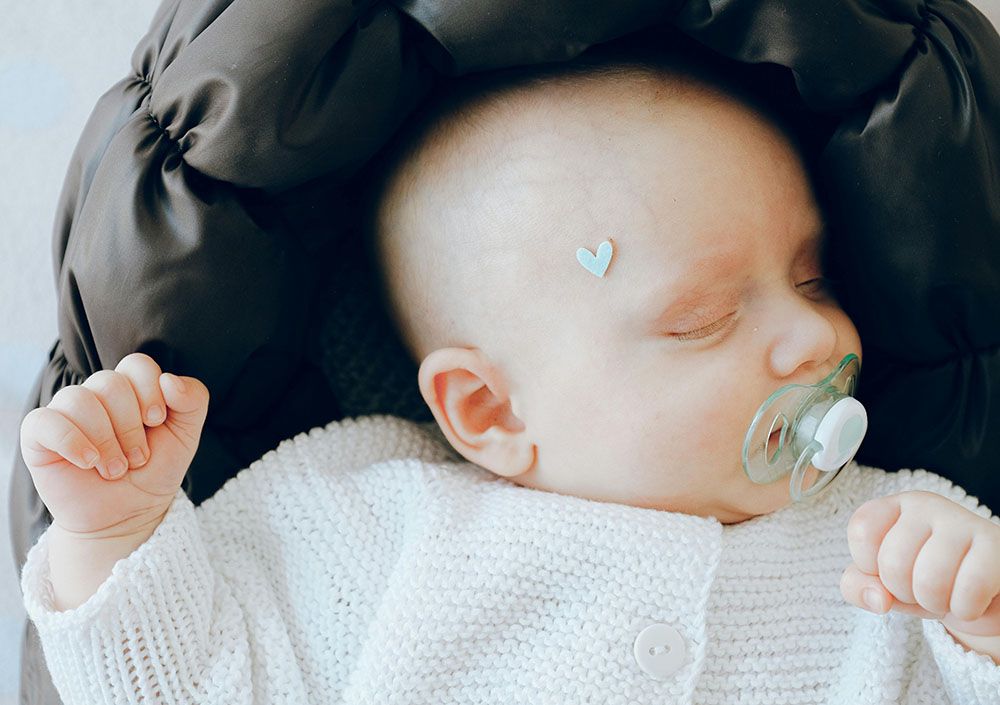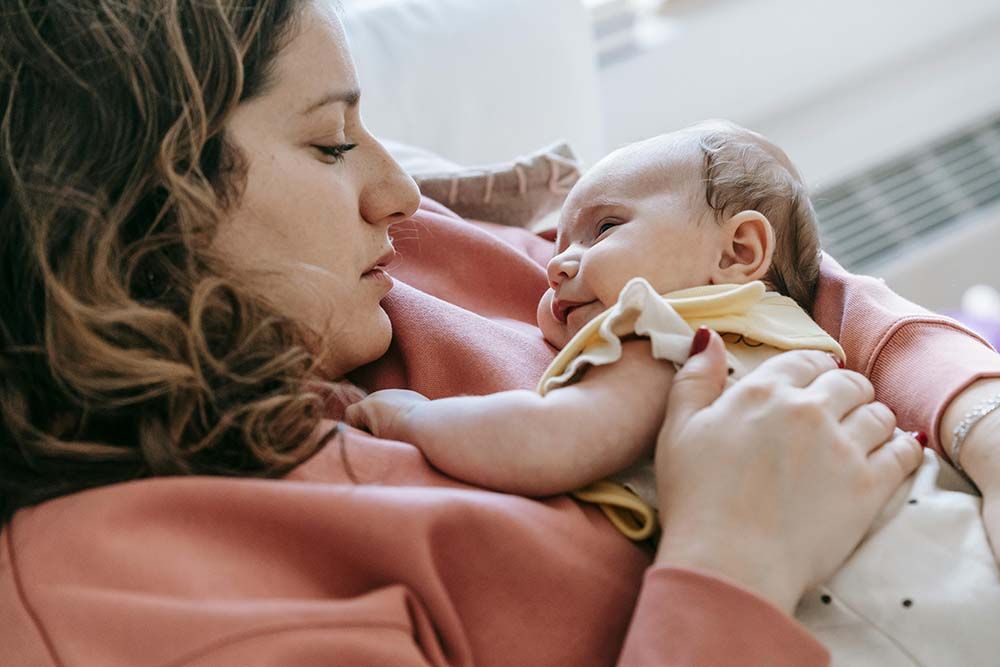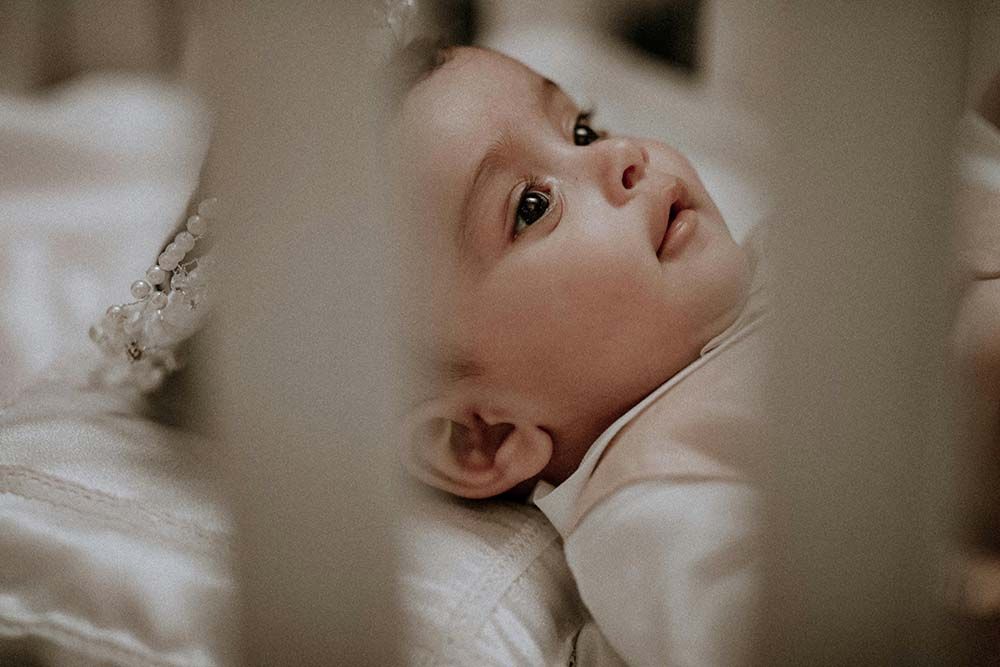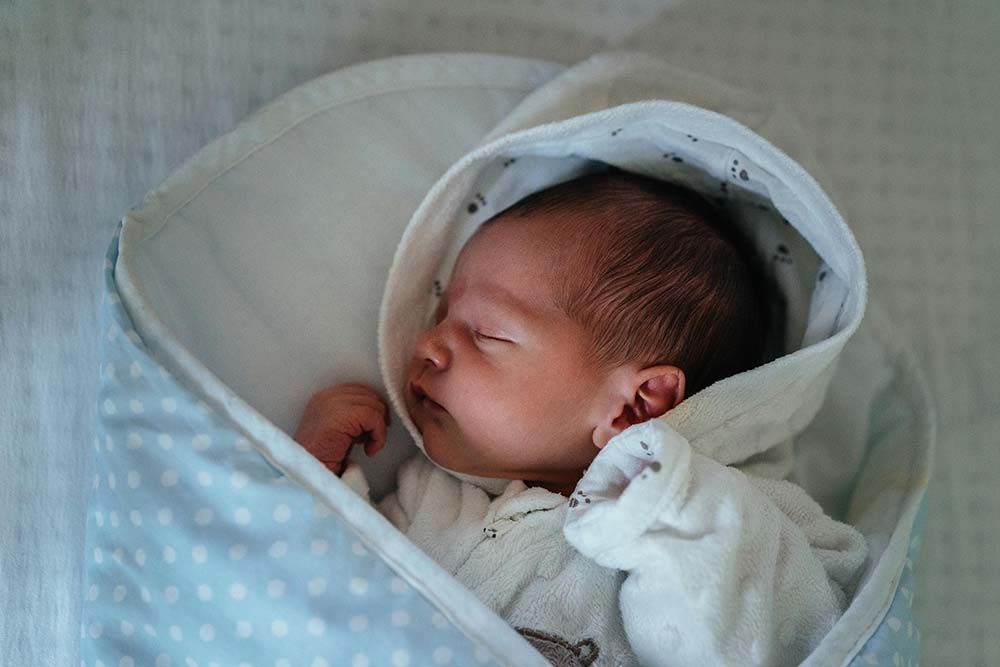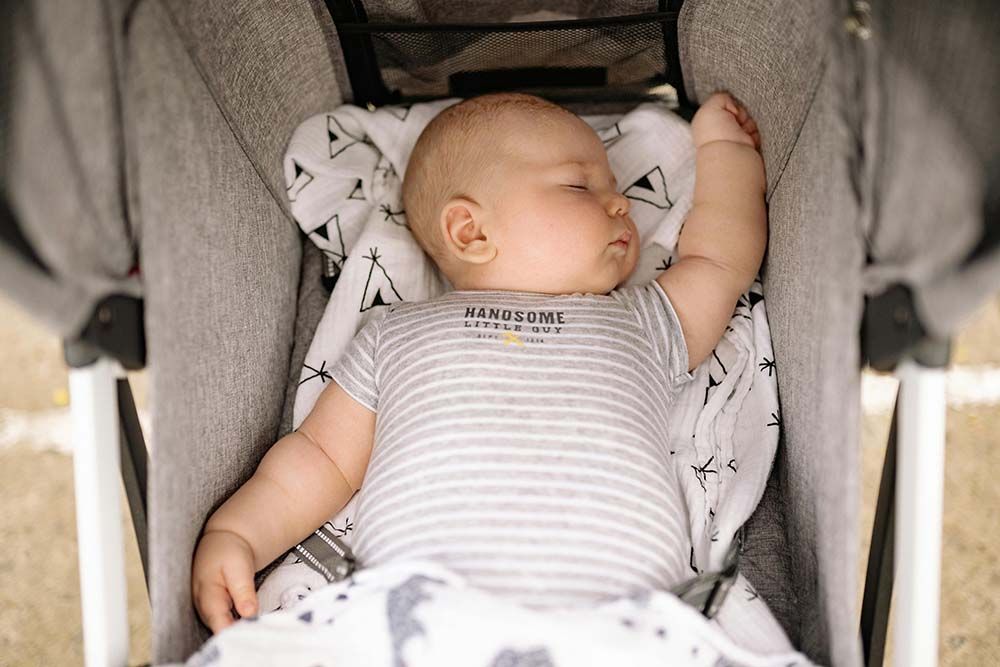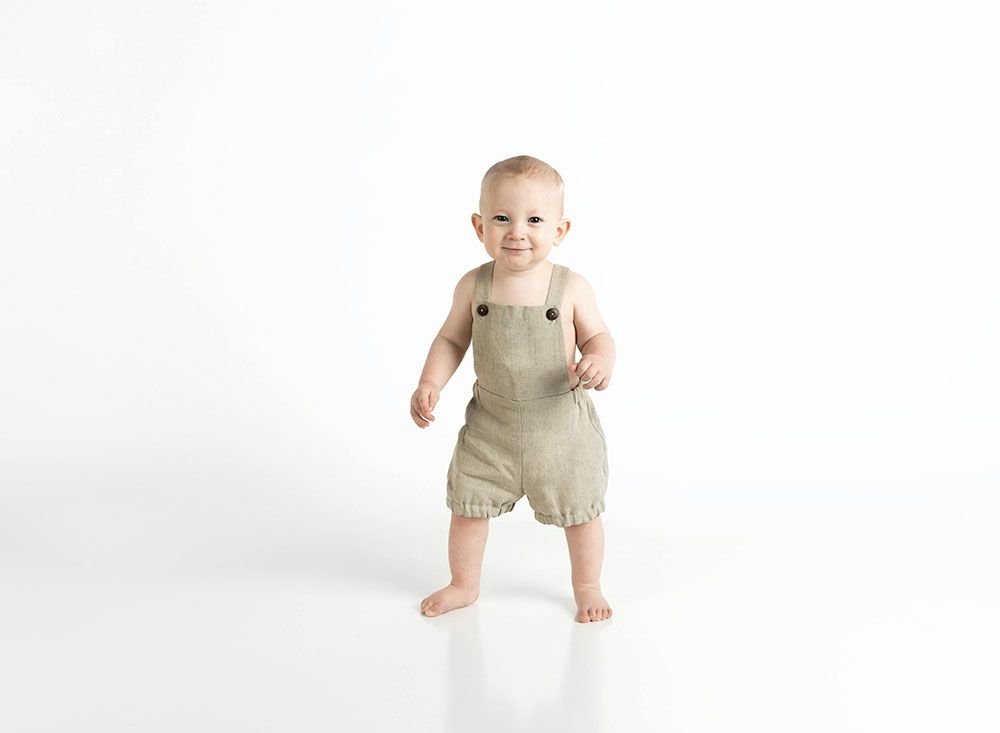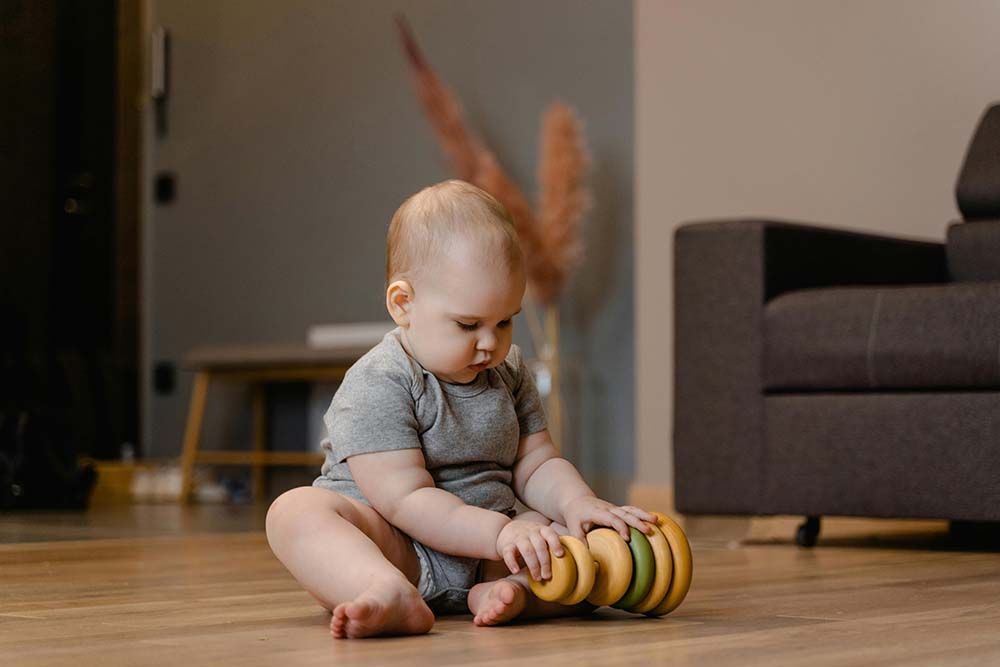

At 22 months, your toddler is full of a bundle of energy and curiosity, with a growing vocabulary and a newfound ability to express themselves in short phrases. Therefore, your baby may spend more time on exploring the surrounding environment and people, and may not want to sleep as usual. In this guide, we'll explore an exemplary 22 month old sleep schedule, offering practical tips and strategies to craft a routine that supports babies’ healthy development.
Since every baby is unique, it may be challenging for parents to find out a suitable schedule, which may take some trial and error. But with our Schedule Creator - Moonycare App, it can predicts a personalized sleep schedule for individual baby, helping parents solve the sleep related issues easily.
IN THIS ARTICLE:
What are Wake Windows for a 22 Month Old?
A Sample Sleep Schedule for 22 Month Old Babies
Naptime Schedule for a 22 Month Old
Is it too Late to Sleep Train a 22 Month Old?
Is There a 22 Month Old Sleep Regression?
What are 22 Month Old Milestones?
What to do if you Have 22-month-old Twins?
What are Wake Windows for a 22 Month Old?
At this age, wake windows typically last between 5 and 6 hours, depending on your child's activity levels, temperament, and overall sleep needs. The first wake window, right after waking up in the morning, is usually around 5 to 6 hours. The second wake window, before bedtime, can shorten to 4 to 5 hours.
These wake windows are essential for balancing your toddler's energy levels and ensuring they are tired enough to sleep but not overtired. Understanding and adjusting wake windows can help minimize bedtime resistance and nighttime wakings.
A Sample for 22 Month Old Sleep Schedule
Here's a sample sleep schedule for a 22-month-old:
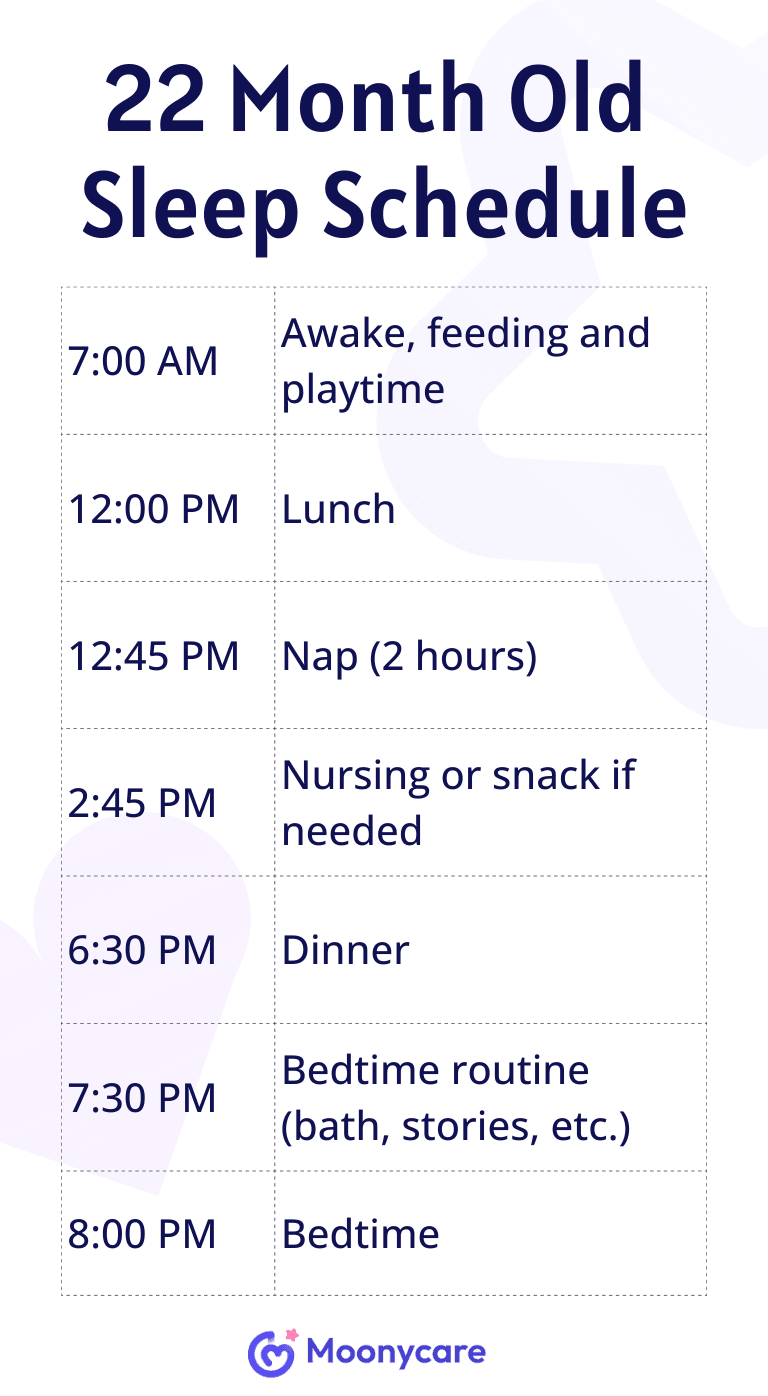
Considering to the uniqueness of each baby, you might need to adjust the nap or bedtime slightly to fit your baby's individual sleep habits.
Bedtime for a 22 Month Old
How Much Should a 22-Month-Old Sleep?
At 22 months, your child typically needs around 12 to 14 hours of sleep in a 24-hour period, including 11 to 12 hours of nighttime sleep. Ensuring your toddler gets enough rest is vital for their growth, mood regulation, and overall development.
What Time Should a 22-Month-Old Go to Bed?
For a 22-month-old, bedtime should typically fall between 7:00 and 8:00 PM. This time frame aligns well with their natural sleep rhythms, helping them achieve the recommended 11 to 12 hours of nighttime sleep. An early bedtime ensures your toddler gets enough rest to support their physical and cognitive development.
To determine the best bedtime, consider your child's daytime sleep, wake windows, and overall behavior. If your child wakes up frequently during the night or is cranky during the day, you might need to adjust bedtime earlier. Establishing a calming pre-sleep routine is essential in reinforcing this schedule. Activities like reading a bedtime story, singing a lullaby, or engaging in quiet play can help indicate your baby to sleep.
Sometimes, even slight variations in bedtime can affect your child's sleep quality, so aim to keep bedtime within the same hour each night, including weekends. A predictable schedule helps your child feel secure and understand when it's time to go to sleep, reducing bedtime battles and ensuring they wake up refreshed and ready for the day.
Can a 22 Month Old Baby Sleep Through the Night?
Generally speaking, babies at 22 months old can usually sleep through the night. Babies of this age are better able to enter deep sleep and stay asleep for longer periods of time as their brains develop. At the same time, their stomach capacity has increased a lot compared to infancy, so they can eat enough food before bedtime to maintain their energy needs at night. If the baby's biological clock has gradually adjusted to a more regular state, accompanied with a safe and comfortable environment, it is possible to sleep through the night for 22 months old babies.
However, each baby's sleep needs and patterns are different. Babies will wake up at night due to physiological needs, such as feeling discomfort caused by teething or other health issues, feeling thirsty, having a wet diaper, or needing to go to the toilet. They may also wake up due to separation anxiety, nightmares, or other emotional factors. For some sensitive babies, changes in the environment may also cause the baby to wake up at night, including noise, light, or temperature.
If the baby wakes up at night, you can let the baby soothe himself and go back to sleep. If the baby continues to cry, parents can give appropriate comfort and gradually reduce nighttime intervention to help the baby better adapt to nighttime sleep.
What if your 22 Month Old Baby Doesn’t Fall Asleep at Night?
1. Optimize the sleeping environment: Keep the room temperature comfortable (about 18-22 degrees Celsius), avoid noise disturbance, and use blackout curtains to block light sources. Make sure the bed is comfortable, and use mattresses and bedding that are suitable for babies.
2. Control the number and duration of naps during the day: Especially the nap close to the night, it should not be too long, so as not to affect sleep at night.
3. Adjust diet and activities: Make sure the baby is full before going to bed, but do not let the baby eat too much or eat food that is difficult to digest. Make sure the baby has appropriate activity time throughout the day to promote natural fatigue and help better sleep at night.
4. Avoid excessive fatigue: If the baby may show irritability, difficulty in calming down, or even more active, it may be excessive fatigue that makes it difficult to fall asleep at night. Parents should pay attention to the baby's sleepy signals (such as rubbing eyes, yawning), and arrange the baby to sleep in time.
5. Solve the problem of separation anxiety: Some babies will have aggravated separation anxiety at night, and may refuse to fall asleep because of fear of separation from their parents, or have difficulty falling asleep again after waking up at night. In this case, parents can spend more time with their babies before bedtime, give them enough comfort and hugs, and help them build a sense of security. If necessary, you can put a comfort item (such as a comfort towel or a favorite plush toy) on the baby's bed to make them feel at ease. If the baby relies on the help of parents to fall asleep again after waking up at night, you can try to gradually reduce intervention and gradually let the baby learn to fall asleep again by himself.
6. Avoid excessive excitement at night: It is best to adjust to a calm mode one hour before going to bed and avoid overly stimulating games or activities. Parents can tell stories to their children, which is conducive to children falling asleep early.
Naptime Schedule for a 22 Month Old
1 - nap schedule
Morning rise: 7:00 AM
Nap: 12:45 PM - 2:45 PM (2 hour nap)
Perform bedtime routine: 7:30 PM
Fall asleep: 8:00 PM
How Long Should a 22-Month-Old Nap?
A 22-month-old usually takes one nap a day, lasting between 2 to 3 hours. This nap typically occurs in the early afternoon and is essential for recharging your toddler’s energy levels, making it easier for them to stay engaged and happy throughout the rest of the day. If your child struggles with napping for the full 2 to 3 hours, consider whether their wake windows need adjusting or if their nap environment is conducive to rest.
How Many Naps Are Expected for a 22-Month-Old?
By 22 months, most toddlers have transitioned to a single daily nap. This nap is sufficient to meet their sleep needs when combined with a full night’s rest. Some toddlers may initially resist dropping the second nap, but maintaining a consistent daily routine can help them adjust. If your toddler seems particularly tired, you might try an earlier nap or bedtime to help them get the rest they need.
My 22 Month Old is Not Napping. What Can I do?
It is a common problem for 22-month-olds doesn’t like naps, especially as children at this age who are beginning to show more independence and activity needs. Most 22-month-olds still need a 1-2 hour nap to maintain energy and emotional stability during the day, but each baby's sleep needs is different. Some babies are born without the need or preference for naps, which does not mean that there is something wrong with them.
The key is to observe the baby's overall mental state and development to determine whether they really need to adjust their nap habits. If the child is energetic and emotionally stable in the afternoon and evening, it may mean that they have enough sleep at night. On the contrary, if the child is very tired, irritable or emotionally unstable in the afternoon, it may mean that they still need a nap.
Be careful to avoid taking a nap immediately after feeding, as the baby may resist falling asleep due to tummy discomfort or indigestion. Parents can take the baby to do some other activities first, such as going to the room to read a book, chatting, telling stories to the child, etc., to calm the child down and make it easier to fall asleep. During this process, parents pr caregivers should pay attention to the baby's tired signs, such as rubbing his eyes, yawning, becoming irritable, etc. Once observing these signs in time, they are supposed to arrange a nap for the baby as early as possible, which may increase the success rate to fall asleep.
In addition, your 22-month-old baby may refuse to take a nap because the nap is too long. You can try shortening the nap time to see whether there is improvement. If your baby strongly resists taking a nap, don't force them to sleep. Forcing your child to take a nap may increase their anxiety and make it more difficult for them to fall asleep.
Is it too Late to Sleep Train a 22 Month Old?
Some people may think that it is too late to start sleep straining for a 22 months. However, if your baby is having trouble sleeping independently, you can take sleep training into consideration, which may help your baby for a peaceful sleep.
This process involves teaching your child to fall asleep on their own and soothe themselves back to sleep if they wake up during the night. There are various methods for sleep training, such as the “gradual retreat” method, where you slowly reduce your presence in the room as your child falls asleep.
At this age, toddlers are more aware of their surroundings and may resist sleep training due to separation anxiety or a desire to stay up and explore. During this period, consistency and patience are crucial, as it may take time for your child to adjust to new sleep expectations.
Is There a 22 Month Old Sleep Regression?
Since every baby develops at their own pace, it is common to see sleep regression at any age. At 22 months, it can be a challenging phase for both parents and toddlers. Around this age, toddlers may start to experience disruptions in their sleep patterns, such as difficulties in falling asleep, increased nighttime awakenings, and shorter naps. This regression is typically affected by developmental milestones such as language acquisition, increased independence, and cognitive growth.
During this period, your toddler's growing curiosity and desire to explore the world can make settling down for sleep more difficult. Additionally, with the growing of separation anxiety, it may lead to more clinginess at bedtime and increased night waking.
To manage this regression, maintain a consistent sleep routine, provide extra comfort and reassurance during bedtime, and ensure your toddler's sleep environment is conducive to rest. While it can be a frustrating time, remember that this phase is temporary and usually resolves on its own as your child's development progresses. Consistency and patience are key to navigating this challenging period.
22-Month-Old Sleep Tips
Here are some tips to help your 22-month-old sleep better:
- Maintain Consistency: Keep wake-up times, nap times, and bedtime consistent every day, even on weekends.
- Calm Bedtime Routine: Establish a soothing pre-sleep routine to signal to your child that it’s time to wind down.
- Monitor Diet: Avoid heavy meals or sugary snacks close to bedtime, as they can disrupt sleep.
- Comfort Items: Allow your toddler to sleep with a favorite toy or blanket for added security.
- Physical Activity: Ensure your toddler gets plenty of physical activity during the day, which can help them sleep better at night.
What are 22 Month Old Milestones?
1. Motor skills
Walking and running: Most 22-month-olds are able to walk steadily and are beginning to try running. They may not run very steadily, but will gradually become more coordinated.
Fine motor skills: Your baby's fine motor skills are further developed, and he or she is able to pick up small objects with the the thumb and index finger. He or she may also be able to eat from a spoon by himself or herself, although he or she may still spill food.
2. Physical development self-care skills
Dressing: Your baby may be able to cooperate with adults to dress, such as extending an arm or leg, but they are still unable to complete complex dressing movements independently.
Toilet training: Some babies have begun to show interest in toilet training at this age and are able to express the need to go to the toilet.
Teething: Your child's lower second molars or upper second molars may be erupting, causing some discomfort from teething.
3. Cognitive development milestones
Understanding simple instructions: Your baby is able to understand and follow simple two-step instructions, such as "bring the book here" or "go get your shoes."
Identifying common objects: Your baby is able to identify and name common objects, such as toys, food, family members, etc.
Sorting and matching: Your baby may be able to do simple sorting and matching of objects by color, shape, or size.
Imitating behavior: Your baby enjoys imitating adult behavior, such as pretending to make a phone call, cook, or clean the room.
4. Language development milestones
Increased vocabulary: Your 22-month-old baby is typically able to say about 50 words, and the vocabulary is growing rapidly.
Short sentence expression: Your baby may be able to say short sentences consisting of 2-4 words, such as "I want a drink of water" or "Mommy, hug me."
Understanding more vocabulary and simple questions
5. Social and emotional development milestones
Interacting with peers: Your baby begins to show more interest in other children and may play parallel games with other children.
Expressing emotions: Your baby is able to express his emotions, such as happiness, anger, fear, or sadness, through words, expressions, and body language.
Attachment to parents: Your baby shows a strong attachment to his parents or other primary caregivers and may be shy or uneasy around strangers.
Separation anxiety: Your 22-month-old baby may still experience separation anxiety, especially when separated from his parents.
What to do if you Have 22-month-old Twins?
For families with twins, it is best to establish a consistent schedule and try to get the twins to sleep at the same time, which ensures that both babies get enough rest while also giving you time to relax or handle other matters. Although synchronous sleeping is the ideal choice, every baby is different. One baby may need more nap time, while another baby may only need a short nap. Respect the differences of each baby and don't force them to do the same thing. Parents can make appropriate adjustments based on the specific needs of their babies to meet their individual differences.
If one baby wakes up first or doesn't want to sleep, try not to let him disturb the other baby who is sleeping. You can gently soothe the baby who wakes up first, give him a pacifier or his favorite toy, and try to let him fall asleep again. If the baby is more excited and doesn't want to sleep, you can take him to another room and do some quiet activities. In addition, twin babies may affect each other, such as if one baby cries, the other will cry too.
So, if it is permitted, it is best to let the twins sleep separately, especially at night. This can reduce interference with each other and ensure that each baby can get better sleep quality. If space is limited, consider using partitions or different beds to help the babies form their own sleeping space. In this case, comfort the crying baby as soon as possible. You can first find out the reason why the baby is crying, whether it is because of hunger, urination, nightmares, etc., and then take appropriate measures. If the crying is due to emotional problems such as nightmares, you can pick up the baby and comfort him softly, while gently stroking the other baby with your hands so that he can also feel comforted.
The most important point is to take good care of yourself. Caring for twins can make you feel exhausted, especially if you have a temperamental child, so don't hesitate to ask your husband and other family members for help to lighten your burden. If allowed, consider hiring a nanny or childcare to help you take care of the twins. Professional childcare can provide you with additional support, especially when you need to rest or deal with other matters.
More related articles:







